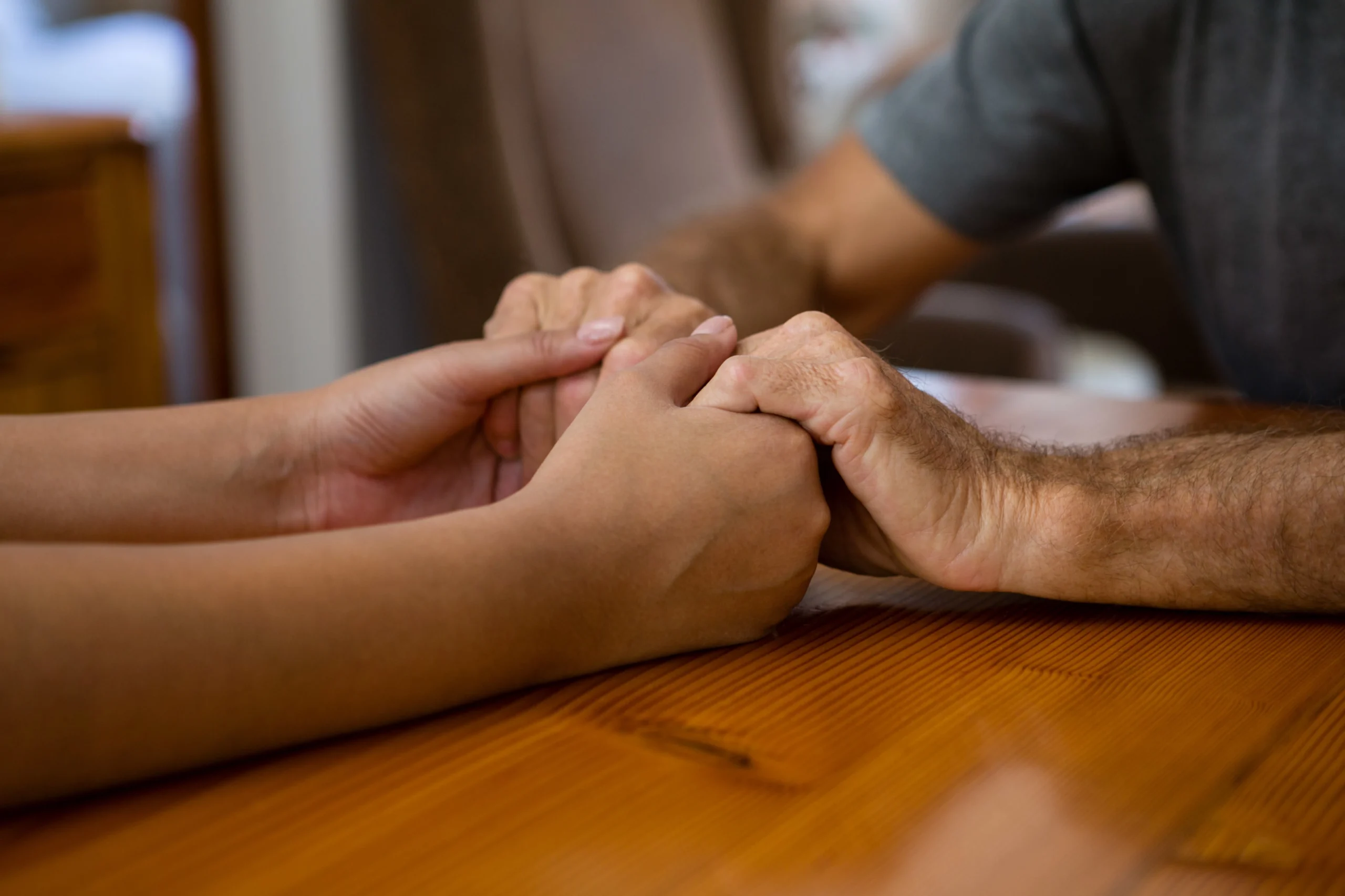How to Support a Family Caregiver and Prevent Burnout
10/14/2025

Caring for a family member is essential and rewarding. However, the daily demands can significantly impact your health. Caregivers are at risk of burning out if they don’t get help or take time for themselves. This article will help you spot warning signs and learn how to stop them from happening.
Understanding Caregiver Burnout
Caregiver burnout is more than just being tired. It means being completely worn out physically, mentally, and emotionally over time.
What Is Caregiver Burnout?
When the stress of caregiving becomes overwhelming, you may experience burnout. It differs from regular stress in that it persists for an extended period and impacts every aspect of life. It typically progresses in this manner: stress, then strain, and ultimately, burnout. When you reach the burnout stage, you may feel like you can no longer provide the care that is needed.
Who Is at Risk?
Anyone who takes care of a family member can get burned out. People who care for loved ones with Alzheimer’s, Parkinson’s, cancer, or disabilities have a lot of work to do. Individuals who must care for others while working or raising children are particularly at risk. People who care for others who lack strong support systems are more likely to experience harm.
Physical Signs of Caregiver Burnout
Your body often sends the first signs that you’re burned out. Physical symptoms can develop gradually or appear suddenly.
Seeing these physical signs early on helps you do something:
- Chronic fatigue that doesn’t go away with rest
- Getting sick more often as your immune system gets weaker
- Having trouble sleeping or sleeping too much
- Headaches or muscle tension that happen a lot
- Changes in digestion or stomach problems
- Significant changes in appetite or weight
These signs show that the demands of caregiving are too much for you to handle.
Emotional and Mental Symptoms
Burnout is bad for both your physical and mental health. These signs and symptoms get worse over time.
These are emotional warning signs to look out for:
- Having mood swings, being irritable, or angry
- Always feeling like you’re too much to handle
- Worrying and anxious all the time
- Feeling sad, depressed, or crying more often
- Not wanting to do things you used to like doing
- Feeling emotionally numb or cut off
- Growing anger at having to take care of someone
Many caregivers feel bad about these feelings, but they are normal reactions to stressful situations.
Behavioral Warning Signs
Behavioral changes indicate that stress has escalated to burnout. These signs suggest that burnout is making it difficult to perform everyday tasks.
One common change in behavior is pulling away from friends and family. You may find it difficult to focus or experience mental fatigue, commonly referred to as brain fog. If you skip your own doctor’s appointments or neglect your personal hygiene, it suggests that you prioritize others over yourself. If you start to feel bad about your loved one, that’s a big red flag. If you think about hurting yourself or someone you care about, get help right away.

Common Causes and Risk Factors
Knowing what causes burnout can help you avoid it. Caregiver fatigue is often caused by several factors working together.
When you struggle to balance being a caregiver with being a spouse or friend, it can be challenging to care for someone. When you think that your care will stop the disease from getting worse, you start to have unrealistic expectations. It’s frustrating not to be able to manage your finances and resources effectively. Many caregivers put too much pressure on themselves. You have to do everything on your own because your family isn’t there for you enough, or there aren’t enough respite services. As conditions worsen, the needs of caregivers continue to grow.
How to Support a Family Caregiver
To help a caregiver, you need to do more than just have good intentions. Thoughtful help really helps people avoid burnout.
For Family and Friends
The people who are close to a caregiver are very important for keeping them safe. Instead of saying, “Let me know if you need anything,” offer specific help. Say things like “I can bring dinner on Tuesday” or “I’ll take mom to her appointment next week” instead. Share the caregiving tasks. Talk to the caregiver often and listen without giving them advice they didn’t ask for. Respect the choices of the caregiver. Set up a family meeting to make sure everyone has their fair share of work. Create a phone tree for your family to help them support one another.
For the Care Recipient
The person getting care can help keep the caregiver from getting burned out. Say thank you for the care you got. Talk openly about what you need, rather than expecting your caregiver to guess what you want. Try to remain as independent as possible. Ensure your caregiver takes regular, intentional breaks.
For Healthcare Providers
Doctors can spot burnout early and help caregivers find the help they need. During appointments, ask caregivers how they’re doing. Give details about counseling services, support groups, and respite care. Make sure to listen to caregivers’ worries. Make caregivers feel like important members of the team.
Prevention Strategies: What Caregivers Can Do
To avoid burnout, you need to take care of yourself. These tips will help you stay healthy and keep giving good care.
Accept Help and Ask for Support
Many caregivers find it challenging to ask for help because it feels like they are admitting they can’t do it. It is actually wise to accept help. Be prepared with specific tasks to complete when someone offers to help. Make a list of things that other people can do, like shopping for groceries or doing yard work. Consider respite care services that can provide support for a short period of time.
Set Realistic Expectations
You can’t stop or treat a disease that gets worse over time. Concentrate on what you can control: making things comfortable, keeping things safe, and maximizing the time you spend together. Be prepared for anything, as some days will be more complex than others. Celebrate little wins.
Prioritize Self-Care
To be a long-term caregiver, it is crucial to prioritize self-care. Even if it’s just for 10 minutes, make sure to take breaks often. Eat well, exercise, and get enough sleep to stay healthy. Go to your own doctor’s appointments. Keep doing things you enjoy.
Manage Stress Actively
Stress management techniques significantly reduce the risk of burnout. The table below lists some easy things you can do every day:
| Technique | Time Needed | Benefits |
|---|---|---|
| Deep breathing | 5 minutes | Reduces anxiety, lowers blood pressure |
| Meditation | 10 to 20 minutes | Improves focus, decreases stress |
| Physical activity | 20 to 30 minutes | Boosts mood, increases energy |
| Journaling | 10 to 15 minutes | Processes emotions, provides perspective |
| Time in nature | 15 to 30 minutes | Restores calm, improves mental clarity |
Pick one or two techniques that you like and practice them regularly.
Stay Connected
Being alone makes you more likely to get depressed and burned out. Join a support group for caregivers, where you can discuss your experiences with others who understand. Many communities have groups that meet both in person and online. Keep your friendships going even when you’re not caring for someone. Set aside time to talk on the phone or visit people who give you energy.
Organize and Plan
Being organized makes life less stressful. Store all your medical records and appointments in one easy-to-access location. Keep an eye on the changes and symptoms of your loved one. Make daily schedules that give you a sense of order. Set reminders for essential tasks on your phone or in your calendar to stay organized and on top of things.
Communicate Openly
Being honest with each other stops anger from building up. Ask your loved one what tasks they can do on their own. Talk about problems with your family members. Talk about your feelings with friends you can trust. Don’t think that other people know what you need.
Seek Professional Help When Needed
Having professional help makes a huge difference. Consider seeing a therapist who specializes in working with caregivers. Care coordinators can help you navigate the healthcare system. Home health agencies send skilled nurses and personal assistants to your home.
Resources and Where to Find Help
There are many resources available to help family caregivers. Respite care services provide a break by sending someone to your home, arranging for you to attend an adult day program, or temporarily placing you in a facility. Support groups can help you manage your emotions and offer you valuable advice. The Alzheimer’s Association and the Parkinson’s Foundation are two groups that offer educational programs. Home health agencies provide professional care. Some places offer programs that provide financial assistance. National helplines are available to provide immediate assistance and information. Professional care managers can make sure that the right services are available.
When to Seek Immediate Help
Some warning signs indicate that you need to seek help from a professional. Call a crisis line right away if you are thinking about hurting yourself or someone you care about. If severe depression is making it hard for you to do everyday things, you need to see a doctor right away. You need immediate help if you are completely exhausted and can no longer perform basic care. Be honest with your doctor about how burned out you are.
Conclusion
Taking care of yourself makes you a better person to care for others. The analogy of the airplane oxygen mask applies: you have to put on your own mask before you can help someone else. If you don’t take care of your own needs, you’ll eventually be unable to take care of anyone else. Support groups, respite services, and counseling can all provide valuable assistance. Reaching out is a sign of strength. Taking care of yourself and avoiding burnout will help you stay healthy and able to give loving care over time.